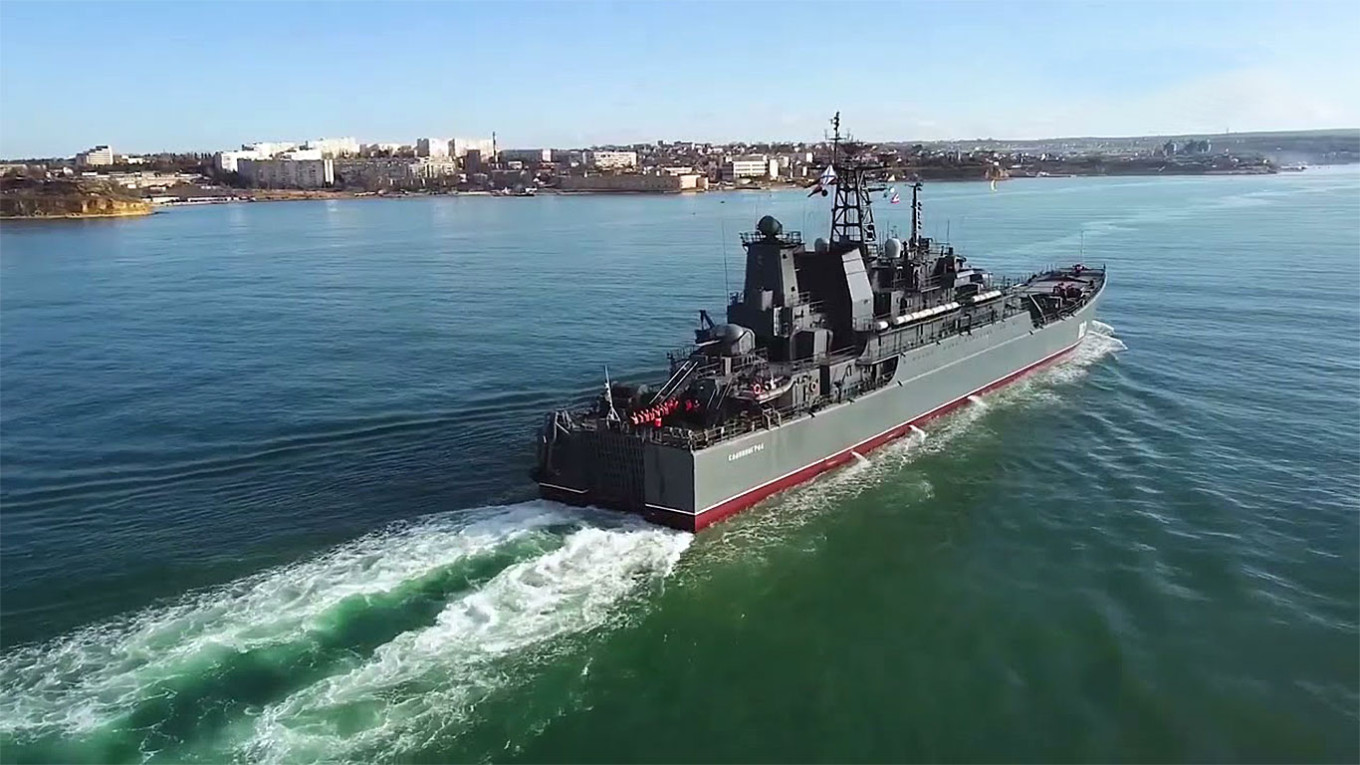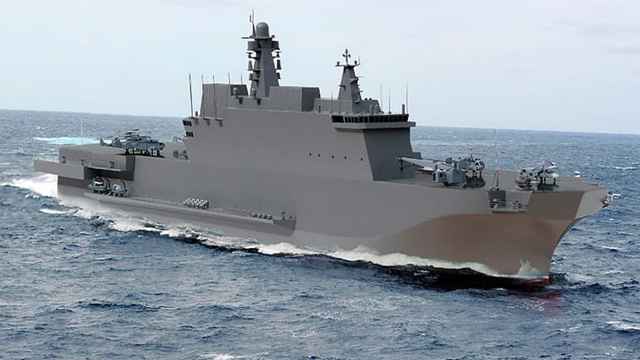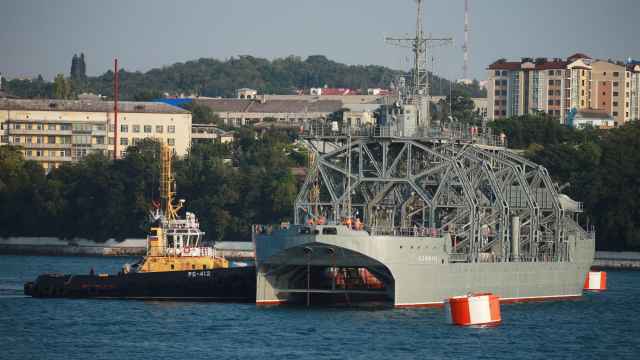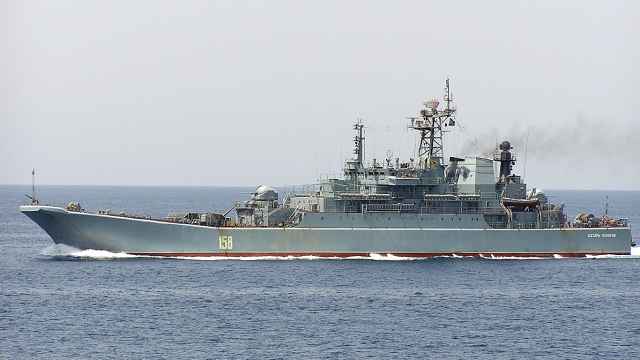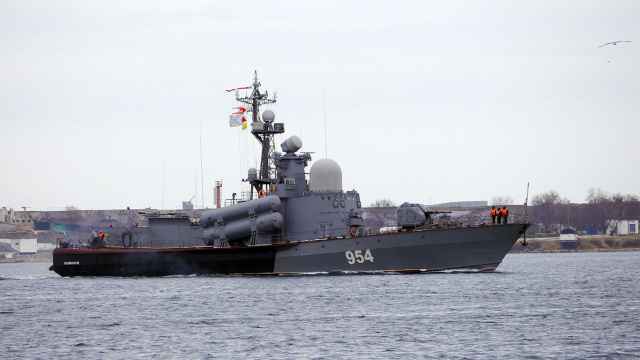Reports circulated last week that Russia had withdrawn much of its Black Sea Fleet from Sevastopol in annexed Crimea. This followed a wave of attacks from Ukraine attacking warships, submarines, and infrastructure in the strategic naval base.
Though the news was met with celebration among Ukraine’s allies, with the British Armed Forces Minister calling it the “functional defeat” of the Russian Navy in the Black Sea, such conclusions may be premature. Analysts say that Russia’s repositioning of its warships does not amount to a defeat, and could still allow Moscow to strike targets in Ukraine.
Where does the story come from?
The Black Sea Fleet has been pummelled by Ukrainian drones and missile strikes for months. In late September, Ukraine claimed responsibility for hitting the fleet’s command center in Sevastopol using British Storm Shadow Missiles.
A few days later, satellite imagery shared by pro-war military bloggers appeared to show Russian warships being withdrawn from Sevastopol. Some of these ships were later seen docked in the Russian port of Novorossiysk, over 300 kilometers away.
However, the withdrawal does not appear to be total. Imagery from Oct. 6 showed at least 13 vessels remaining in Sevastopol.
Norwegian defense analyst Thord Are Iveson said that Russia has withdrawn vessels from Sevastopol after Ukrainian attacks throughout the war, only for them to return later.
“One must have in mind that ships are most vulnerable in or near their bases to both [unmanned surface vessels] and long-range strikes, so some dispersal immediately afterwards is natural and expected,” he said, adding that ships can move to different bases depending on their mission at the time.
Why was the fleet in Sevastopol?
Russia’s borders have for centuries been shaped by its desire for a major port which would not freeze over during winter. This would not only improve Russia’s access to maritime trade routes all year round, but would help it develop an imperial navy to guard its interests.
Sevastopol was founded as a naval base under the rule of Catherine the Great after the Russian Empire annexed the Crimean Khanate in 1783. Its strategic location allowed Russia to control the Black Sea, and made it a target for armies ranging from the British and Ottoman Empires to Nazi Germany.
Control over Sevastopol became a point of tension between Kyiv and Moscow after the fall of the Soviet Union, with the Russian Senate going as far as to endorse claiming the port as a Russian exclave. A series of agreements signed in 1997 saw Ukraine and Russia agree to share the naval base, with Kyiv receiving $526 million in return for Moscow using over 80% of the port’s capacity.
The desire to solidify control over Sevastopol is considered to have been a motivating factor behind Russia’s annexation of Crimea in 2014. Since February 2022, missiles launched from warships and submarines in the port have targeted Ukrainian infrastructure and major cities like Odesa. The port’s location has also allowed Russia to choke off routes for the export of Ukrainian grain.
Where could the Black Sea Fleet move?
Satellite imagery shows vessels which were previously stationed in Sevastopol in other Crimean ports such as Feodosia as well as Novorossiysk in the Krasnodar region. Both of these are close enough to Ukraine for Russia to launch strikes with Kalibr missiles.
Though it primarily functions as a trading port, Novorossiysk was already home to parts of the Black Sea Fleet. It is smaller and shallower than Sevastopol, and competition with trading vessels for berths limits how many ships and submarines it can hold.
Relocating the fleet to Novorossiysk may not even protect it from Ukrainian attacks. While Kyiv has a limited number of missiles with the range to strike the port, it has achieved some success with unmanned air and seacraft. The Russian Defense Ministry claimed in August to have fended off an attempt to attack the port with sea drones.
Are there any other alternative ports?
The leader of the breakaway region of Abkhazia — internationally recognized as part of Georgia — has signed an agreement to host the fleet at Ochamchire. The port has been under defacto Russian control since 2009, and has been used to transport coal from areas of Ukraine under Russian occupation since 2014.
Currently, Ochamchire is too shallow to host larger warships. But dredging efforts mean it could host some smaller ships which are still capable of launching missiles.
Though both Novorossiysk and Ochamchire have undergone modernization, neither has the sophisticated infrastructure of Sevastopol. This allows the port to recover from Ukrainian airstrikes, making it a target for Kyiv in its own right. Equipping other ports with similar facilities would be expensive and unachievable in the short term.
Why would leaving Sevastopol be significant?
Controlling Sevastopol allows Russia easy access to Ukrainian waters, where it conducts patrols, blockades Ukrainian ports, and launches strikes to support military operations in the Zaporizhzhia and Kherson regions.
The Black Sea Fleet’s withdrawal from the region could hamper Russia’s ability to continue these efforts, at least in the short term.
Furthermore, a retreat would not stop the fleet from posing a threat to Ukraine. Russia could continue to launch strikes on Ukraine from warships stationed in Novorossiysk.
The British Defense Ministry has said that damage to Sevastopol would deal a symbolic blow to Russia’s war effort and projection of power in the region in addition to a military one. They suggest Ukraine’s counterattacks would force Moscow into a reactive position, expecting yet more strikes.
A Message from The Moscow Times:
Dear readers,
We are facing unprecedented challenges. Russia's Prosecutor General's Office has designated The Moscow Times as an "undesirable" organization, criminalizing our work and putting our staff at risk of prosecution. This follows our earlier unjust labeling as a "foreign agent."
These actions are direct attempts to silence independent journalism in Russia. The authorities claim our work "discredits the decisions of the Russian leadership." We see things differently: we strive to provide accurate, unbiased reporting on Russia.
We, the journalists of The Moscow Times, refuse to be silenced. But to continue our work, we need your help.
Your support, no matter how small, makes a world of difference. If you can, please support us monthly starting from just $2. It's quick to set up, and every contribution makes a significant impact.
By supporting The Moscow Times, you're defending open, independent journalism in the face of repression. Thank you for standing with us.
Remind me later.



